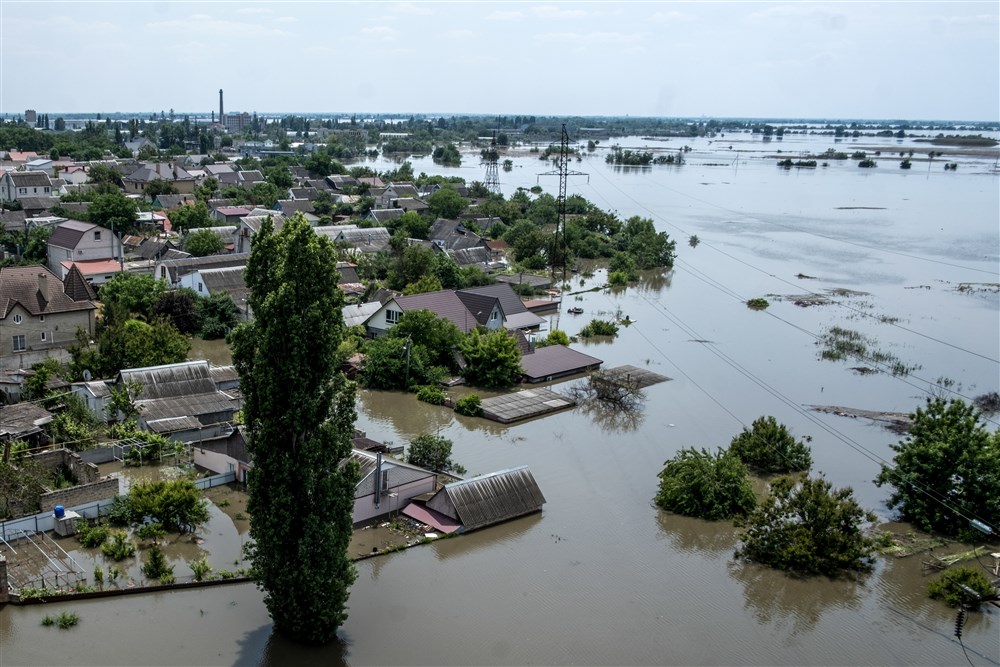In Vilnius last week the centre-stage was taken by the mini-drama over Ukraine’s future NATO prospects – and by President Zelensky’s quite extraordinary Twitter tantrum, denouncing the Alliance’s decision on the matter as “absurd”. This was either a loss of judgement due to the pressures of war, indicating perhaps a much more worrisome situation at the front than is being reported; or a purposeful political play, perhaps looking to start shifting the blame on to NATO for whatever hard choices Mr Zelensky feels he might have to take in the coming months. It is hard to tell at this point, although sudden rumours about a new 100,000-strong Russian army poised to strike north of Bakhmut might be relevant to the president’s recent statements.
With the Ukraine issue in the headlines, one of the NATO summit’s rather important outcomes passed almost unnoticed – and it deserves more attention. France blocked a proposal to open a NATO liaison office in Japan. This would be the first of its kind in Asia and is intended to “facilitate consultations”. Plans for the office were first reported in early May, after NATO Secretary General Jens Stoltenberg’s January visit to Tokyo where he discussed “China’s coercive behaviour” with the Japanese prime minister. The issue would have also been discussed at the G7 summit in May, hosted this year by Japan.
The Chinese, predictably, criticised the proposal publicly in strong terms. They don’t see it as merely a symbolic and benign bureaucratic admin issue, but as the thin end of a NATO wedge, the precursor of perhaps more substantial NATO activities in the Indo-Pacific. Considering the growing treaty-based bilateral security relationships between the UK and US – NATO’s top two military powers – with Japan, as well as the now-regular attendance of the “AP4” grouping at NATO’s summits (the Asia Pacific Partners: Australia, Japan, South Korea and New Zealand), Beijing is right to worry.
But is Macron right to veto the Office – and effectively endorse the Chinese view – on the grounds that “the Indo-Pacific isn’t the North Atlantic”? Although meant in the sense that NATO’s treaty-defined area of responsibility is confined to the area between North America and Europe, Macron’s remark also reflected the widely-held Old World view that the security affairs of Asia are none of Europe’s business. Paris and Berlin in particular just want to keep a lucrative trade with China; they see the Americans and their security-centred rivalry with Beijing as getting in the way, with NATO being dragged into this for Anglo-American, not European, interests.
This is not just a short-sighted view, but almost self-harming from a strategic perspective – and it undermines Europe’s future. It was left to Stoltenberg to explain in Vilnius that “security is not regional but global”. What happens in the Indo-Pacific, whether a major war over Taiwan or “just” the bloodless ascendancy of Communist China to military-economic dominance of the region, is profoundly consequential to Europe.
European strategic thinking – particularly in corridors of power of this “geopolitical” European Commission – would be well served by applying some hard cold realism to its analysis of how international security actually works, and where the long-term threats lie. Perhaps new terms are required as well, and for that, Europe’s strategists might want to take some inspiration from the increasingly robust and complex way in which these questions are approached across the Channel. In the new concept of “Atlantic-Pacific”, Europe might find a useful way forward for its own strategic debates.
The UK’s latest top-level “grand strategy” document, the Integrated Review Refresh 2023, has adopted – for the first time – the term “Atlantic-Pacific” to describe the scope of British power and the focus of UK interests. The rationale behind this is that the Euro-Atlantic and Indo-Pacific are “inextricably linked”. From the point of view of UK strategy specifically, Britain has been expanding its activities with Indo-Pacific allies through AUKUS and GCAP (Global Combat Air Programme, to build the next-gen fighter plane with Japan and Italy), plus new political frameworks with India and others, and joining the CPTPP trade agreement etc. This is in addition to pre-existing alliances and relationships that are being revitalised.
Fundamentally, the Atlantic-Pacific has become a strategic continuum – a single strategic space – because of the Chinese challenge and the balancing responses required to contain it. Major policy issues cannot be contained in one or the other theatre (Atlantic or Pacific); when they occur, they trigger effects across both. The Ukraine war has seen Pacific countries from Australia to South Korea and Japan joining in the diplomatic, economic and even military assistance organised by the West. South Korea has become a major military hardware contributor to European (primarily Polish) defence, as well as to the Ukrainian war effort. Strategically, the pressure exercised on China in the Pacific theatre limits Beijing’s support for Russia, while the economic fate of the Indo-Pacific (and Western ability to share in its success) drives much of global economics overall, and therefore drives the national capacity of Euro-Atlantic countries as well.
It is an increasingly costly mistake, therefore, to imagine that a would-be major geopolitical player like Europe (let alone France by itself) can play a “global” role through an unbalanced – and therefore incomplete – global strategy that focuses overwhelmingly on its own neighbourhood first and foremost. Macron is wrong on NATO’s Japan office and on trying to compartmentalise Asian security from that of Europe. On the contrary: the Atlantic-Pacific is the main artery in the world’s geopolitical body; everything else is a distraction.
Gabriel Elefteriu is deputy director at the Council on Geostrategy in London and a fellow at the Yorktown Institute in Washington, D.C.






How is the war going to end? Ukraine must be ready to concede territory in return for a path to NATO and EU membership